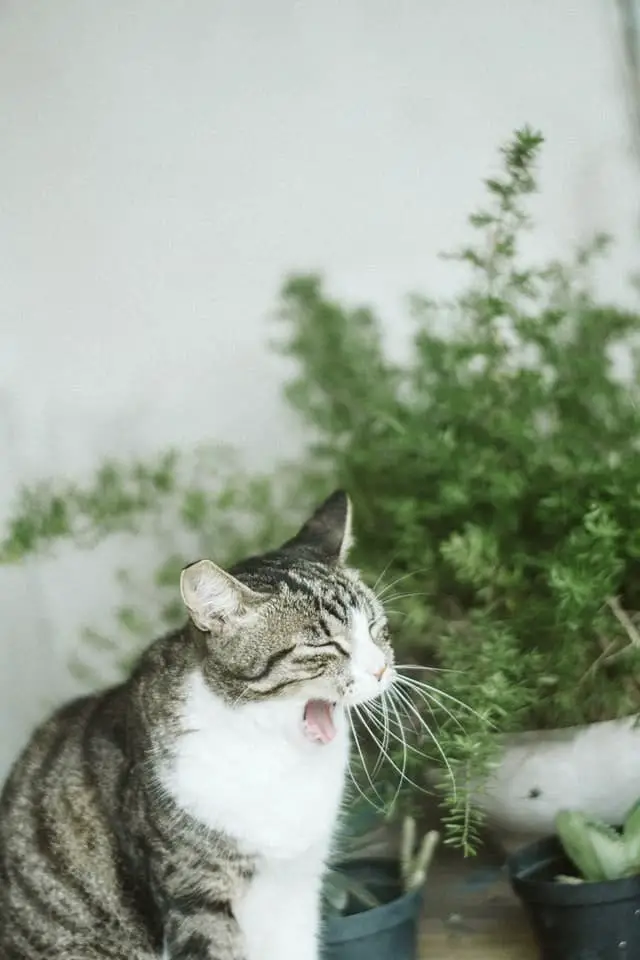
Did the cat lose its voice and meow strangely? Find out what are the causes behind a cat’s laryngitis and all the most effective remedies.
How strange it is not to hear our cat meow as usual! In fact, it can happen that the cat has problems with laryngitis or has a hoarse voice. It could be a passing problem, lasting only a few days, but if it persists, what would be the most effective remedies? But above all, let’s find out what is the best way to prevent these disorders and help our cat in difficulty: all there is to know when a cat has lost his voice.
The cat has lost his voice: symptoms
It is not enough that the cat is unable to make a sound to confirm the diagnosis, but it is equally likely that it does not lose it completely and yet is unable to make clear and precise ones. Of course the first thing to do is to analyze the sounds it emits and the related symptoms : in fact, if he continues to play and do his daily activities in absolute normality, there is no reason to be alarmed since all in all he is fine. The problem could be solved quickly and without any consequences.
If, however, the cat should emit hoarse, dry and non-continuous sounds, it could be a more serious problem, such as laryngitis. When it comes to a pathology or a respiratory infection, we must count on the help of the veterinarian who will certainly be able to indicate the best treatment to make it heal. It is absolutely not recommended to administer drugs or other remedies to our cat without a doctor’s prescription: we wait for the expert to visit him and we follow his instructions!
Laryngitis in cats
It is an inflammation of the larynx, the organ responsible for the emission of sounds thanks to the vocal cords that are inside it. Its symptoms are:
- a hoarse and not very intense meow,
- dry and irritating cough,
- difficulty swallowing,
- fever,
- swelling and sharp pain of the throat to the touch.
If we see that our cat has difficulty swallowing after the first bite and cannot even swallow a sip of water, if he feels pain when we touch his throat and coughs frequently, then it could be laryngitis. If we manage to open the muzzle we may notice the presence of plaques, even if they are not always frequent and the tonsils can be inflamed or infected. If we want to use herbal and natural remedies, extracts of rose hips, propolis, and erisimo decoctions can be useful.
The cat has lost his voice: how can this happen
If your cat suffers from aphonia, it can also be a temporary problem but it is good to get to the bottom of the matter and not let it pass by itself. Equally fundamental is to understand what are the reasons that led the cat to this condition of aphonia. Here are the causes that may have caused the loss of voice in our four-legged friend:
- a surgical operation,
- a trauma (for example a fight between cats),
- a congenital problem,
- cat stress,
- cold (which irritates and inflames the larynx).
How to prevent and treat aphonia in cats

When we have a pet, it is our moral duty and not only to take care of its health, also in order to prevent some physical problems. A three to four day aphonia may be normal, but if it lasts longer it is time to intervene. If it is a question of aphonia or laryngitis, it is essential that a cat does not get cold. So we are careful to dry it well after swimming or returning from a walk outside in the rain. You should never give it cold water, but rather lukewarm.
Only the vet can prescribe or administer drugs to the cat! So we don’t have to rely on the treatments prescribed to our friend’s cat to repeat the same procedure on our cat: these are different cases that must be treated in an equally different way. Only the veterinarian will be able to evaluate the specific case and find the most suitable remedy for our cat.






